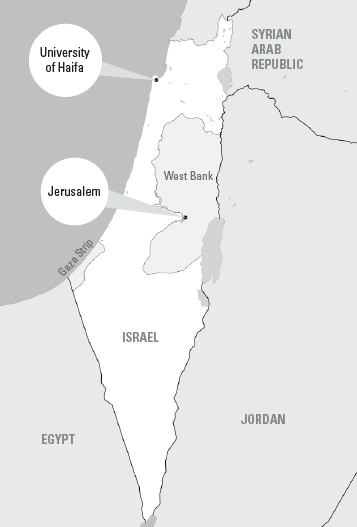
The CSU Chancellor’s Office has reinstated its study abroad program to Israel, which has been suspended since 2002, and is currently accepting applications from interested students.
The program was initially suspended due to a state-issued travel warning near the University of Haifa, the CSU host school, according to CSU spokesperson Stephanie Thara.
“Travel Warnings are issued when long-term, protracted conditions that make a country dangerous or unstable lead the State Department to recommend that Americans avoid or consider the risk of travel to that country,” the U.S. Department of State website says.
In Dec. 2011, the CSU sent a team of investigators to assess the security situation and deemed the area safe for students, despite the travel warning still in place for the area, Thara said.
“The CSU has strict policies for students who wish to study in any country with a travel warning. The chancellor actually has the authority to grant an exception if the security in the program is strong,” Thara said. “This is the case for the University of Haifa.”
An open letter to petition the program because of costs and the travel warning, signed by about 80 CSU faculty and staff members, was presented to CSU Chancellor Charles B. Reed after the Oct. 2011 meeting of the Academic and Fiscal Affairs Committee of the CSU Academic Council on International Programs.
But some CSU faculty, such as CSUN mathematics professor David Klein, who also authored the petition, said politics are the reason the chancellor is turning his head from the travel warning.
“Politically, it’s almost impossible for this country to criticize Israel, Politicians fall all over themselves to praise Israel and say how wonderful it is,” Klein said. “Reinstating the program was all part of that political process.”
U.S. citizens and students have been killed and severely injured by Israeli military forces, according to the petition letter. In 2010, Emily Henochowicz, a 21-year-old Jewish American art student, lost an eye after being shot in the head with a high velocity tear gas canister.
“If a Palestinian student applied to the program and was accepted, it would be dangerous for them just on the basis of their race,” Klein said.
Participating CSU students could face discriminatory treatment based on race and ethnicity, the letter claims. Especially those with Arabic or Muslim names, and those born in Muslim or Middle Eastern countries.
However, the CSU insists the program is safe and advises students to stay clear of the Gaza Strip and West Bank, according to the University of Haifa’s website.
“The security situation around the University of Haifa was evaluated,” Thara said. “The chancellor’s office and the CSU campuses have made sure that it is safe for students. They have taken all measures to make sure it is deemed as safe.”
Dozens of CSU members support the petition initiated by Klein, but many others are against it and, according to Klein, and have sent “hate mail” regarding the issue his way.
“How can you live with yourself while promoting anti-Semitism?” wrote activist Misha Nasledov in an email sent to Klein in response to the petition. “You just want to kill all of us Jews.”
More information about the CSU study abroad to Israel program is available on their website and also on the English version of the University of Haifa’s website.
“This side of the issue is rarely presented in the American press. I hardly ever see anything that’s positive about Palestinians or critical about Israel,” Klein said.





